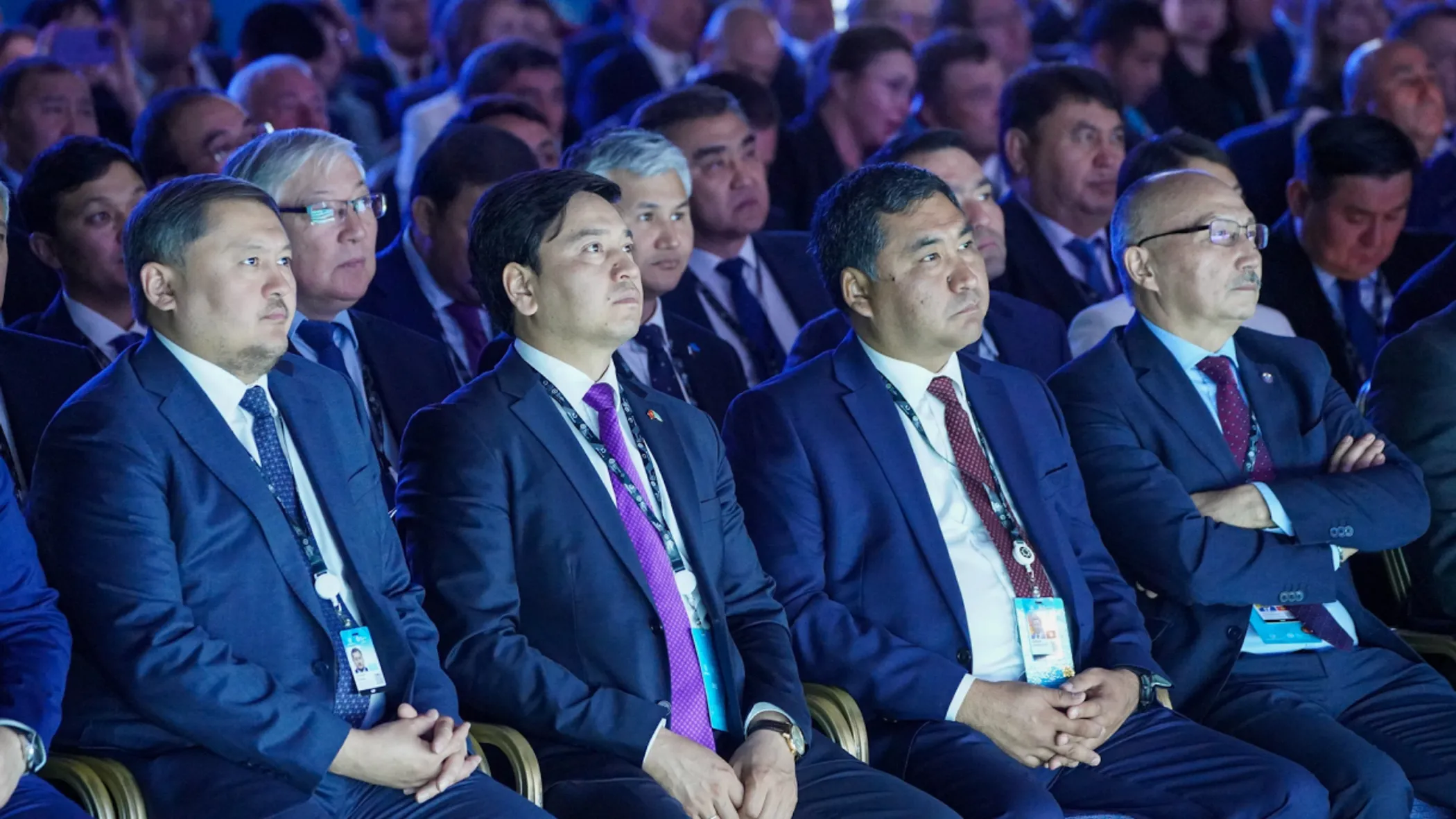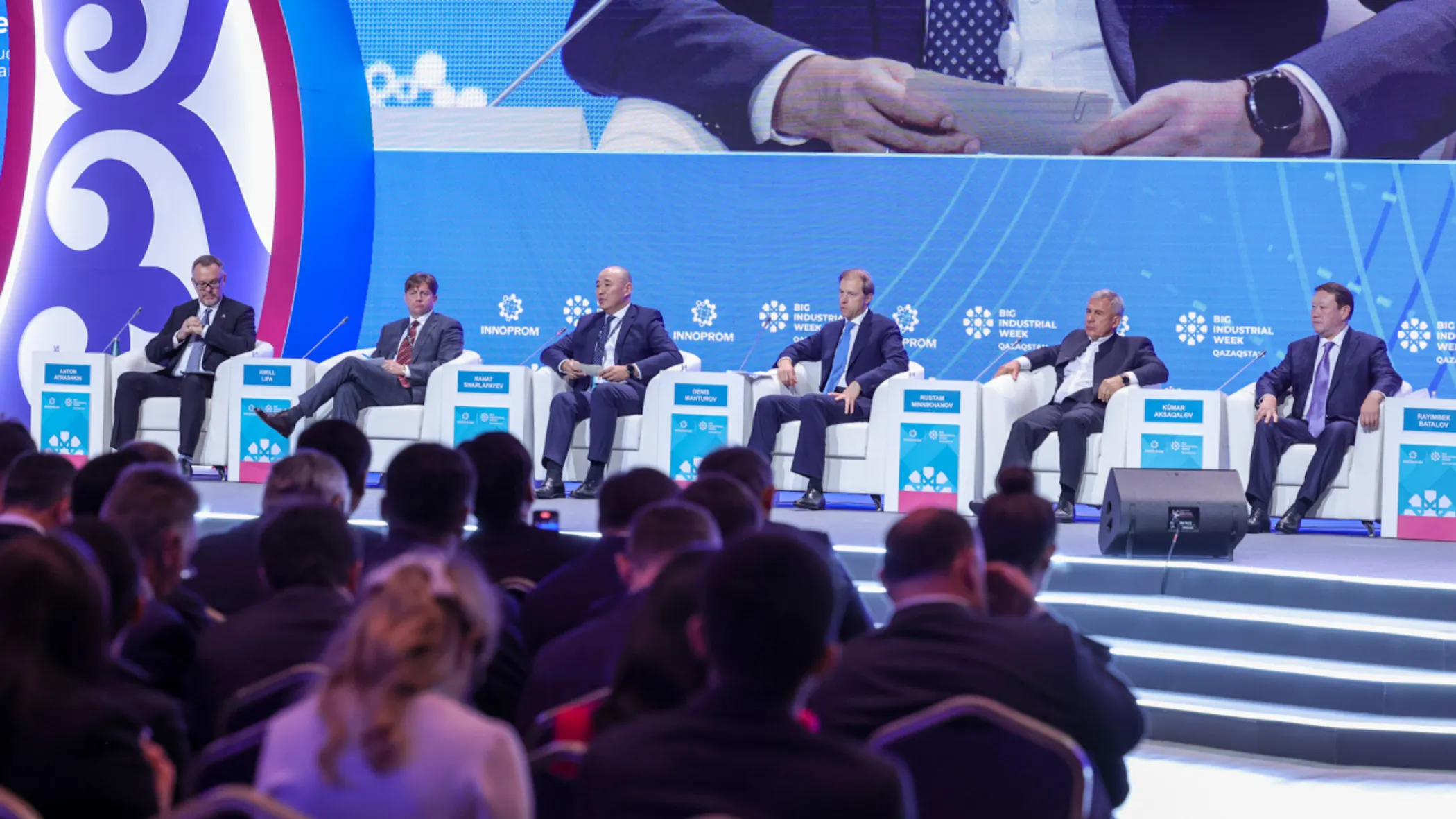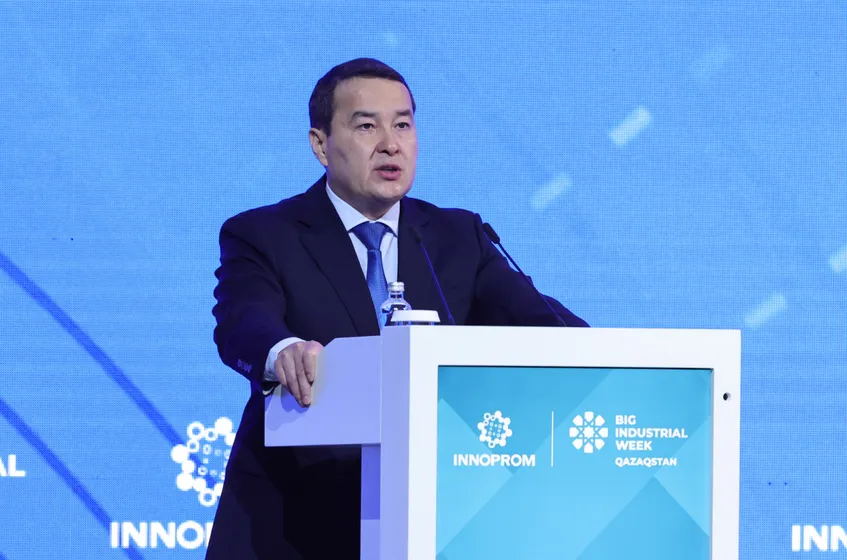The Prime Minister of the Republic of Kazakhstan, Alikhan Smailov, delivered a speech at the main plenary session titled "Industrial Strategies of the Modern Time'' at INNOPROM. QAZAQSTAN international exhibition, QazMonitor reports citing primeminister.kz.
Alikhan Smailov emphasized that, as part of efforts to establish a robust industrial framework for Kazakhstan and ensure economic self-sufficiency, the government is focusing on the accelerated development of the manufacturing sector. Measures are being taken to implement projects aimed at creating high-value-added clusters, particularly in the fields of oil, gas, petrochemicals, metallurgy, heavy machinery, automotive components, fertilizers, uranium mining, and other segments.
"To achieve this, Kazakhstan is undergoing systemic reforms, and measures of state support are being enhanced, with a proactive approach to attracting investments," stated Alikhan Smailov.
Over the past five years, the production volume of the manufacturing industry has increased by 2.2 times, and the gross value added in the industry has grown by 2.3 times. Labor productivity has reached $49,000, which is more than double the average economic indicator.
The mining and metallurgical complex serves as the foundation of the domestic manufacturing industry. Last year, exports of products amounted to $19.3 billion, which accounts for approximately 23% of the country's total exports. We have established mechanisms to ensure the availability of raw materials for domestic enterprises. Agreements have been signed with major suppliers of raw materials for the supply of primary aluminum and copper.

He added that the engineering industry continues to develop dynamically. In 2022, the industry attracted $500 million in direct investments. In Q1 2023, direct investments exceeded $208 million.
The production volume in the automotive industry amounted to 113,000 units of products in 2022. From January to August 2023, nearly 100,000 units have been produced, showing a growth of 41%. In terms of value, this amounts to over 1 trillion tenge. Additionally, the production of construction materials in Kazakhstan has also surpassed the trillion mark for the first time.
"The Concept of Development of the Manufacturing Industry adopted this year reflects all these indicators. By 2030, we plan to have achieved a 2.8-fold increase in gross value added, a 1.8-fold increase in labor productivity, and export production worth $225 billion," said the Prime Minister.
The establishment of the Industrial Development Fund has strengthened a wide range of support tools, and the fund has already financed investment projects worth over 200 billion tenge, and projects worth 150 billion tenge are underway.
Currently, there are over 1,000 projects in the pool, spanning over the mining and metallurgical complex, machinery, petrochemicals, chemicals, pharmaceuticals, and other sectors. The main priorities of cooperation include deep processing, maximizing localization, production of new products, and [fulfilling] export potential.
Smailov emphasized that establishing a new technological framework, including the transition from basic to complex production, requires legislative strengthening. For this purpose, the government is improving approaches to tax, budget, and regulatory incentives for business activity.
In order to promote the development of small and medium-sized businesses in the regions, small industrial zones are being created to provide entrepreneurs with readymade manufacturing facilities.
According to Smailov, another crucial component of industrial advancement should be the widespread adoption of innovation and advanced technologies. As UNCTAD (United Nations Conference on Trade and Development) predicts, the global market volume for new technologies will exceed $3 trillion by 2025.
"Today, artificial intelligence is already being applied in all industries, contributing to the optimization of production cycles, full automation of processes, and management control and security. Therefore, flexibility and adaptability are required in such conditions," emphasized the Prime Minister.

Alikhan Smailov also noted that in view of the disruption of global production chains, new guidelines are forming for investment flows.
"In this regard, we believe it is important to pay special attention to the development of regional value-added chains," he said.
The Head of the Government added that digital transformation remains a global trend and should be viewed as a priority direction for cooperation within the Eurasian Economic Union (EAEU).
Today, Kazakhstan has implemented large-scale projects in areas such as FinTech and GovTech. We have achieved a high level of penetration of digital solutions into everyday life. Now our task is to reach the same level in the real sector. The Autonomous Cluster Fund 'Park of Innovative Technologies,' IT Technopark 'Astana Hub,' and research centers at higher education institutions are already actively involved here.
According to him, a crucial factor in achieving the set goals is human resource development. In this regard, work is being carried out in Kazakhstan to open branches of leading technological universities from abroad.
"This will enable us to prepare specialists with new insights into managing innovative projects and developing competencies for the engineers of the future," emphasized the Prime Minister.
In conclusion, he noted that alongside addressing industrial growth issues, the relevance of the environmental agenda should not be forgotten: emissions control, the implementation of clean technologies in production, and waste disposal and recycling should be priorities for enterprises.
The exhibition is attended by the Prime Minister of Belarus, Roman Golovchenko, the Chairman of the Cabinet of Ministers and the Head of the Presidential Administration of Kyrgyzstan, Akylbek Japarov, and the Prime Minister of Russia, Mikhail Mishustin.
In total, the main plenary session gathered approximately 700 participants, including high-ranking representatives from the public sector, regional leaders, heads of industrial enterprises, members of industrial unions, and associations of the Eurasian Economic Union countries.










